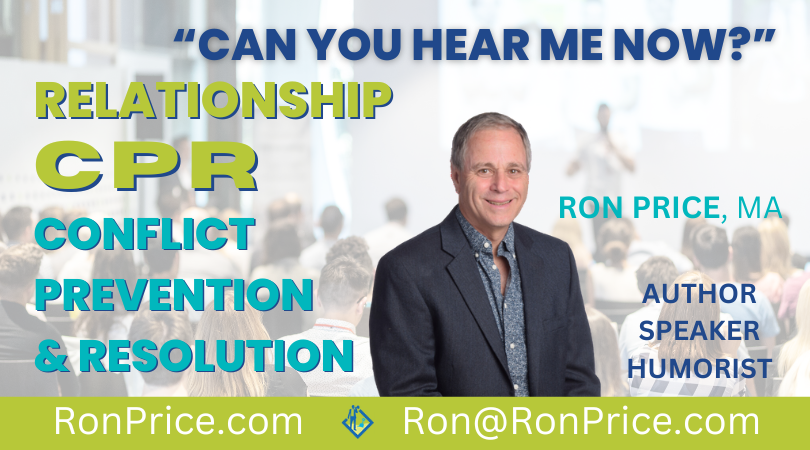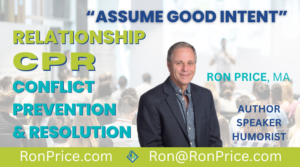It’s funny how some ad campaigns can remain in the public consciousness for years after they stopped airing. You might remember the commercial for a cell company in which a man repeatedly asked, “Can you hear me now?” That’s also a question we might ask of our friends, relatives, co-workers and church members from time to time.
Communication, as you have likely discovered, can be mighty challenging. While there are several possible explanations for this shared experience, I propose one of the main ones must be our inability or unwillingness to fully listen to others.
Many people confuse listening with hearing and assume they are identical. Trust me; they are not. Hearing requires little or no effort, while effective listening requires focus and intention.
In the Covey Seven Habits of Highly Effective People course, participants learn about five listening levels. In order from least effective to most, they are:
- Ignoring
- Pretend listening
- Selective listening
- Attentive listening
- Empathic listening
Ignoring likely needs little explanation. Chances are you have had the experience of speaking to someone who had their mind on something other than what you were saying. It’s not an enjoyable experience.
The same can be said for when someone pretends to listen to you but does not. It’s not much better than completely ignoring you.
Selective listening occurs when someone listens to you but only for an opportunity to key in on what interests them. For example, have you ever started telling someone about a special memory or vacation and suddenly found yourself hearing about their event or vacation? If so, you engaged with a selective listener.
Moving up the chain, we get to attentive listening, which is far better than its predecessors, but still not ideal. While an attentive listener is, by definition, paying attention to the speaker, they are doing so from their own perspective. They might ask questions for clarification, but only to satisfy their desire for information rather than learning what the speaker wishes to communicate.
This brings us to empathetic, as opposed to the all-too-common pathetic, listening. According to dictionary.com, empathetic listening is characterized by “the psychological identification with the emotions, thoughts, or attitudes of others.” So it’s listening not only to understand the words of the other but also their feelings and what it means to them—not to you.
If you think of people you admire and like to be around, chances are one of their qualities is that they listen empathetically. By doing so, they show a genuine interest in you and what you have to say. They fully engage in the conversation and demonstrate sincere care and concern for you. Unfortunately, empathetic listeners are few and far between. You are fortunate if you have even a handful of people in your life who will readily suspend their thinking to focus solely on you.
EFFORT WELL SPENT
And yet, isn’t that how we, as Christians, should be? In Phil. 2:4, we read: “Don’t look out only for your own interests but take an interest in others too.” The well-known, but not always well-practiced, verse in James 1:19 tells us that we should be “quick to listen, slow to speak, and slow to get angry.”
Can you imagine how relationships could improve if people practiced these verses regularly? What impact would that have on our homes, workplaces, or churches?
So, if listening is essential for healthy relationships, why don’t we do it more often? We could look at several reasons, but this is not the place for that. However, I want to challenge you to spend some time researching effective listening–effective communication, for that matter, and then look for opportunities to practice what you learn. You may ask a friend or family member to join you in this venture.
I’ve written more about effective communication in my PLAY NICE in Your Sandbox book series. You can find them on my website or email me at ron@ronprice for an OUTLOOK Magazine reader discount.

In the meantime, let me emphasize again the importance of empathetic listening as a vital component of Relationship CPR.
It will require some time and effort, but I guarantee you will find it to be time and effort well spent.
This post is a copy of Ron’s published article in OUTLOOK Magazine






